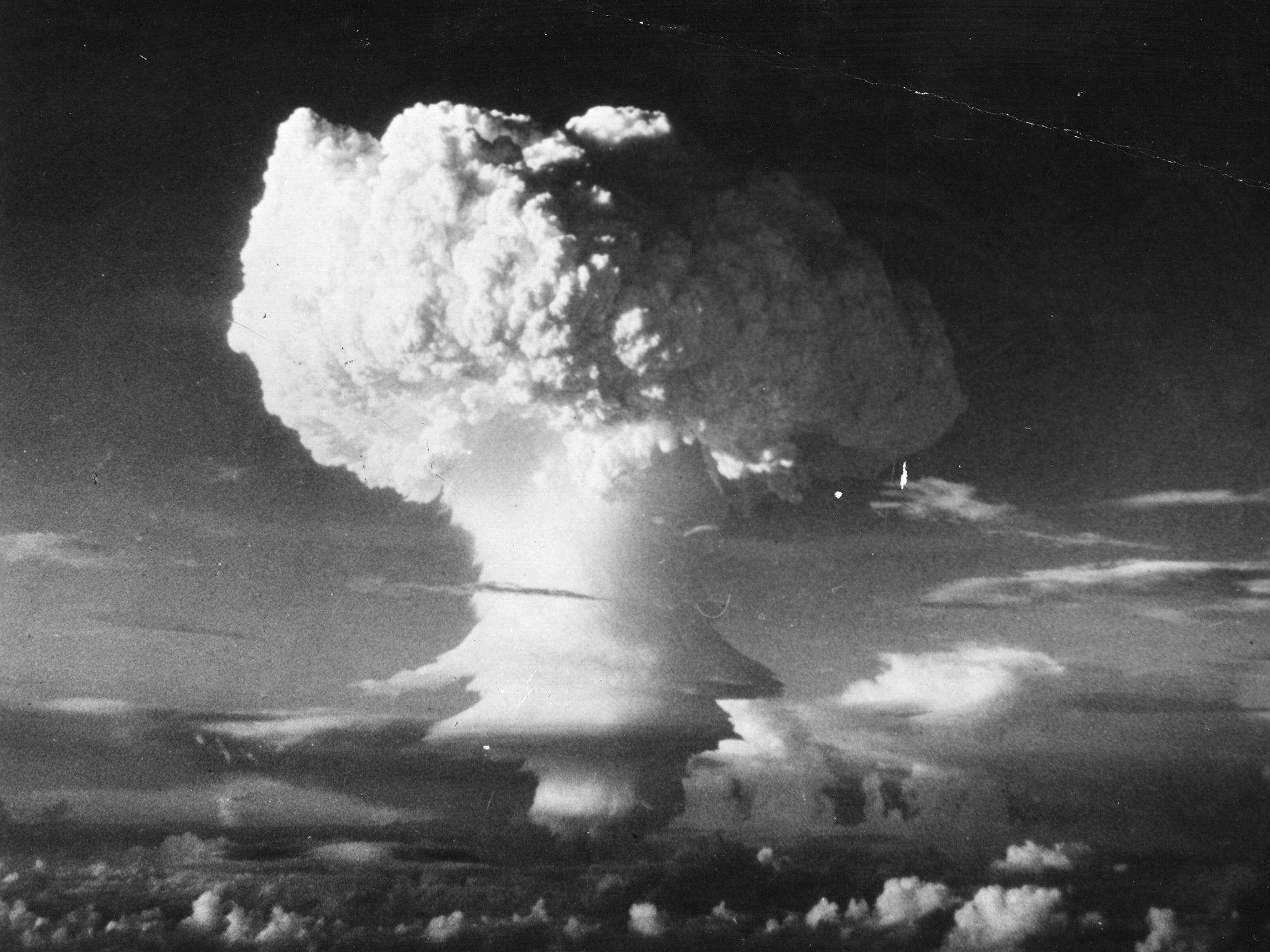'The Anthropocene': The human epoch started with first atomic bomb test, scientists decide
The start of the nuclear age began the 'Great Acceleration' of human progress

On 16 July 1945 the first atomic-bomb test took place at the US Army testing range at Alamogordo in New Mexico, and with that first historic nuclear explosion a new geological epoch began on Earth, scientists have decided.
A sequence of subsequent nuclear tests left an indelible mark around the Earth due to radioactive fallout which coincided with a worldwide “great acceleration” of other human activities that ushered in a new geological epoch, they said.
The Anthropocene – which means the human epoch – is still being debated by the international community of geologists but a working group set up to study it believes that if there were to be a single date to mark its beginning it would be 16 July 1945.
“It was a pragmatic decision to choose that date in time because it was such an important historical moment,” said Jan Zalasiewicz, a geologist at Leicester University and one of the principal architects of the Anthropocene concept.
Scientists had previously argued that the start of the new human epoch could be said to have begun either with the invention of agriculture about 10,000 years ago in Mesopotamia or the start of the Industrial Revolution in England in the 18th Century.
However, unlike these relatively local events, the nuclear weapons tests in the mid-20th Century spread radioactive isotopes around the world. This means the very first test marked the moment when human activity began to leave an indelible mark throughout the world, said Dr Zalasiewicz, who is also the chairman of the Anthropocene working group set up by the International Commission on Stratigraphy, which oversees changes to the geological timescale.
“Like any geological marker, it is not a perfect marker. Levels of global radiation really rose in the early 1950s, as salvoes of bomb tests took place. But it may be the optimal way to resolve the multiple lines of evidence on human-driven planetary change,” Dr Zalasiewicz said.
Previous transitions or boundaries from one geological era to another are marked by a “golden spike” in the geological record caused by a global event, such as the mass eruption of supervolcanoes or the collision with a gigantic asteroid, such as the one that accelerated the demise of the dinosaurs 65 million years ago.
The start of the nuclear age also coincided with the post-war economic expansion around the world which led to what scientists have called the “great acceleration” of human activity. This also left an indelible mark on the Earth, its geology and its biosphere, said Professor Will Steffen of the International Geosphere-Biosphere Programme in Stockholm.
“It is difficult to overestimate the scale and speed of change. In a single lifetime humanity has become a planetary-scale geological force,” Professor Steffen said.
Scientists have studied a broad range of planetary “indicators” ranging from the climate change and the growth of the human population to the recycling of minerals and nutrients, and found that human activity is now the prime driver of change on the Earth.
“When we first aggregated these datasets, we expected to see major changes but what surprised us was the timing,” Professor Steffen said.
“Almost all graphs show the same pattern. The most dramatic shifts have occurred since 1950. We can say that around 1950 was the start of the Great Acceleration,” he said.
“After 1950 you can see that major Earth system changes became directly linked to changes largely related to the global economic system. This is a new phenomenon and indicates that humanity has a new responsibility at a global level for the planet,” he added.
The findings, published in the journal Anthropocene Review, will be presented next week to the World Economic Forum in Davos, Switzerland.
Join our commenting forum
Join thought-provoking conversations, follow other Independent readers and see their replies
Comments
Bookmark popover
Removed from bookmarks